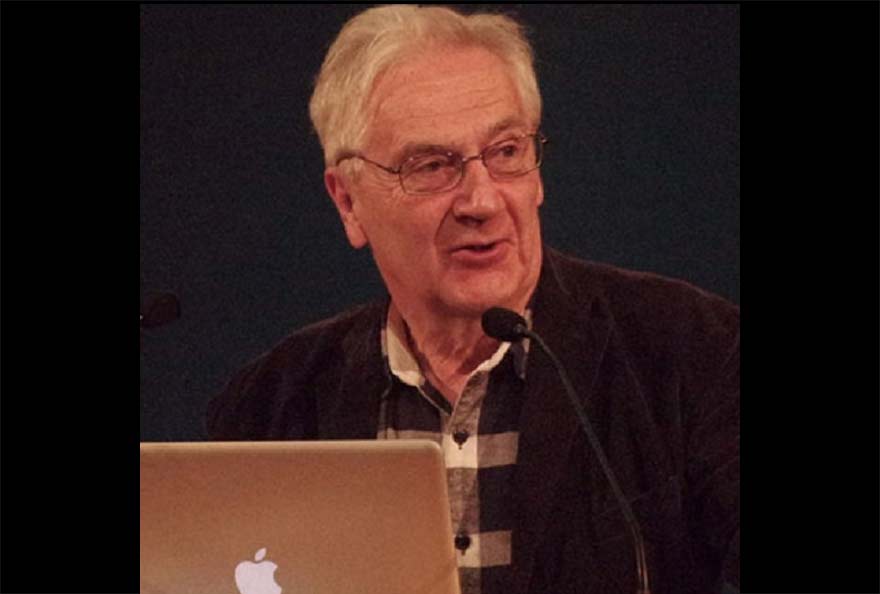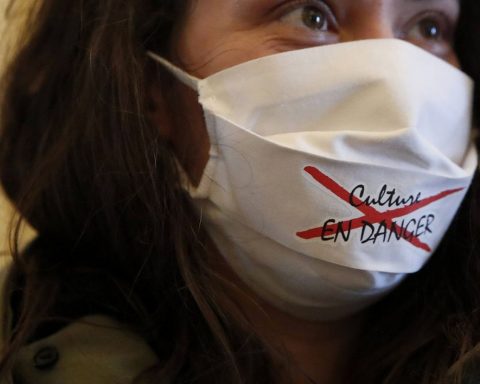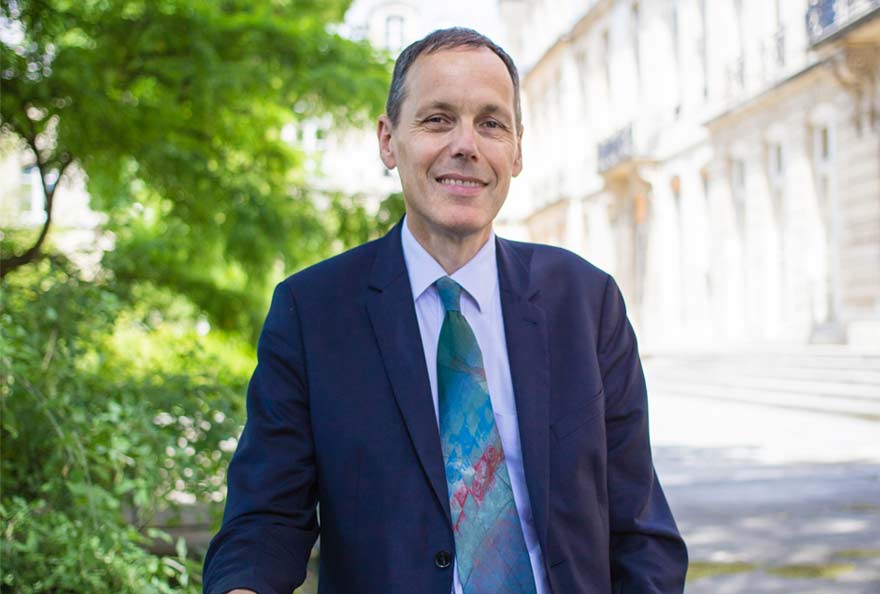We are experiencing a major change in civilization, which is reflected in our relationship to consciousness, education and money, as well as in our relationship with nature and all the kingdoms of life.
We need to move from an instrumentalization of nature to being in love with it and knowing how to deal with it, and reconnect with the Teachings, in the sense of spirituality, in order to reappropriate the sense of purpose and to achieve mature governance in the service of nature and the common good.
Thierry Gaudin had been entrusted by the government with the mission of launching an innovation policy for France, which led him to carry out a strategic and prospective watch that resulted in the creation of Prospective 2100.
Thierry Gaudin is a graduate of the Ecole Polytechnique, an engineer from the Corps des Mines, with a PhD in Information and Communication Sciences (thesis on "Innovation and prospective: anticipatory thinking"). He is in charge of the French Ministry of Industry (1971-1981), of the construction of an innovation policy: creation of the "Innovation Policy", which is a joint project with the French Ministry of Industry. "sixcountries program on innovation policies" creation and organisation of the Inova trade fair; setting up of design courses, regional research-industry networks, reform of ANVAR, which has since become Oséo then integrated into the BPI... Then, he founded and directed (1982-1992) the Centre for Prospective and Evaluation of the Ministry of Research and Technology: International Technological Watch (Silicon Valley, Japan...), Evaluation of the effectiveness of Research and major technological programmes, which led to the development of a world outlook for the next century, published in 1990 and 1993 by Payot under the title "2100, the story of the next century".
Creation of Prospective 2100, an international association whose objective is to prepare planetary programmes for the 21st century, of which he is president.
Publications of books on Foresight and Innovation (see list and videos),
Website: http://gaudin.org
Thierry Gaudin 1
Part 1 - The creation of the Association Prospective 2100
At the beginning of the 1970s, the Ministry of Industry decided to launch an innovation policy, which did not exist in France before. And we took part in ANVAR afterwards.
It was with JP Chevènement that the Ministry of Research was asked to integrate foresight and to carry out a watch, and it was with JP Chevènement that I administered for several years.
In this foresight activity, I have first of all carried out international technology watch in order to have as fresh and valid a capital of information as possible. And when Mr Curien came back in 1988, I suggested to him: there are technical centres, engineering schools, a whole host of things around technology and it's a bit of a mess. An audit would have to be carried out. And then I have another possible proposal, we know enough to launch a world outlook report.
The result was the book 2100 Stories of the Next Century. 600 people collaborated on this project.
The industrial civilization was matter and energy, therefore the horizontal axis. What is emerging is the other axis that is becoming dominant with the nanosecond on one side and the problems of preserving the ecology and the relationship of the human species with nature that are not being assumed.
The idea of the planetary garden, it encompasses the gardener, the guardian, gardener and guardian is the same, nature begins today. At first you had a minority who were in favour of the garden, and little by little it's gaining ground among the agro-food industry. "(Cf part 4 development of the planetary garden)
Part 2 - A change in civilization that we don't yet see the extent of ...Consciousness, education, money ...structuring of time - 07:56 to 15:26
It is a change of civilization whose magnitude we do not yet measure. The major inventions of writing and printing today are instantaneous and global communication.
This has an impact on consciousness, education and currency.
"Today we are in an instantaneous, global communication that concerns not only the written sign but also the image and video. So it means that the consciousness of the human species is being transformed. Towards what?
Some will manipulate the psyche and at the same time individuals can access information in the same way as professionals.
We are in a society of information, but also of misinformation. The manufacturing process has also been revolutionized. "3-D printers mean a complete revival of craftsmanship. Industry is giving way to new forms of craftsmanship.
For communication, you have at your disposal for individuals now the means to make videos, communication tools that are the same as for institutions. What happens to the big TVs?
What is happening to the school system that today is formatted to go and select executives for multinationals? But these executives don't know how to do anything from the point of view of video editing, for example. They don't even know how to communicate with contemporary tools.
We are in a huge gap between value systems, hierarchies and modes of transmission that are unsuited to current uses.
What happens to money in a system of instant communication where presumably after undergoing this enormous monetary unification (which was a disaster) ... Why? Because monetary unification opens the door to all predators ....
What's going to happen as a result of this concentration of wealth? With a mobile phone you can carry out monetary exchanges, with Orange for example. We no longer go through the banks. The ability to create money may be reappropriated by the public, by the people. »
We are not in a religious society, we are in a fetish society, fetish is the currency today. »
Part 3 - a change of civilization, the extent of which is not yet apparent the relationship of the human species with nature, the management of the planet
This change in civilization also has a major impact on the relationship of human beings with nature.
"If you look at the expectations, even at 2053 to 2100 of rainfall. You see less rain in South Africa, less rain in Mexico, less rain in Spain too, more rain in England, more in Russia, and more also in parts of Brazil. What does that mean? It means migration, but not migration - a few hundred people drowning in a boat, it's millions, maybe even hundreds of millions... With the system of nation states we know, it doesn't work. Because nation states block the borders, they try to eliminate emigration.
There is one country where the rainfall will apparently be quite significantly reduced, and that's India... That's the migration to the North because Siberia is becoming much more habitable because of global warming.
Faced with these planetary problems, we need a rational attitude, i.e. to anticipate, to organize. In other words, if there is a need to create new cities or new areas in certain parts of the planet, we must anticipate this.
Link: the currency wars. http://www.amazon.fr/guerre-monnaies-Chine-nouvel-mondial/dp/2355120544/ref=sr_1_1?ie=UTF8&qid=1443120174&sr=8-1&keywords=les+wars+currencies
We come back to the monetary issue because what is happening now is that you have the Lisbon Treaty for Europe. In its article 123, it explains that the States in order to finance themselves, they have to turn to the market. That is to say to the banks. But the market only knows how to finance "profitable" things, i.e. things that will make money. For the common good, the commons well, there is nothing. »
The common goods were financed by the States that obtained their income from taxes and when the richest (individuals and companies) put their income in tax havens, the States are diminished in their financing capacity at the same time as the problems of common goods increase.
So we are in a total contradiction, so we can only get out of this by saying we are going to create money other than by going through the banks. »
The problem of this relationship with nature goes back to the first question that was asked, that is, what do we make of this nano-second affair and the financial, monetary consequences? »
Local currencies are not going to be sufficient, they allow to recreate autonomies, but it is necessary to envisage that the IMF, the World Bank for example can take charge of these stakes.
We're in a completely Keynesian system of putting money into economic activity, not into planning the planet."
Part 4 - The Planetary Garden
Development and sustainability is an oxymoron, but when we say development, it completely overlooks the fact that we are a part of the biosphere; and that therefore we must have a relationship with other living beings that is not only a relationship of predation, but also one of preservation and love. The gardener is a lover of his garden, he is in symbiosis with the garden.
It is no longer a question of utilitarianism but of an inner attitude and the questioning of goals.
The problem is much deeper than that, it is in spirituality. Spirituality had been overshadowed in Western countries, where we practiced the currency fetish.
I think what is at issue is the human species being intimately connected to the biosphere. That is to say, the human species as a particular expression of life. And so for me the spiritual is first of all respect for other cultures of the living and other cultures of the human species.
First peoples who live in harmony with nature have teachings to give us.
The second point is the relationship with animals, you have all the work that has been done by ethology since Conrad Lauren. All that work is to study animals not as if they were machines but to study animals in the communication we can have with them and in the teachings they can give us. »
Thierry Gaudin2
Part 1 - Planetary Garden Suite, Species Interaction Linkage
"It's not just primates, it's all of nature, all animals, all plants can talk to us too.
Lobbies of all stripes tend to shoot at statements that are not in their best interests. »
Part 2 - Foresight and education
"If we don't have a clear vision of what France is, and the world itself because 30 years is the world, unfortunately we can't make a valid reform. We do it according to a classification, a hierarchy, an idea of success that is an old idea.
Let's go one step further to conceive the Teachings (in the sense of Vinoba), that is to say, the spiritual teachings.
Thierry Gaudin3
Part 1 - Two priority areas for action
France has a big role to play and people abroad have high expectations of us.
"Universalist education, computer literacy and harmony with nature. Within that, there is this story of the fetishism of money that we must deal with by reappropriating the manufacture of complementary coins. That the people re-appropriate the instruments of exchange and consequently a certain form of conviviality. »













2100 estun ouvrage que j’ai acquis en1 994et qui est ma Bible Temporelle .je me suis connecte car je ressens la nécessite meme a mon âge de rester lucide sur l’évolution de notre civilisation occidentale et sur l’évolution de notre planète .merci Monsieur